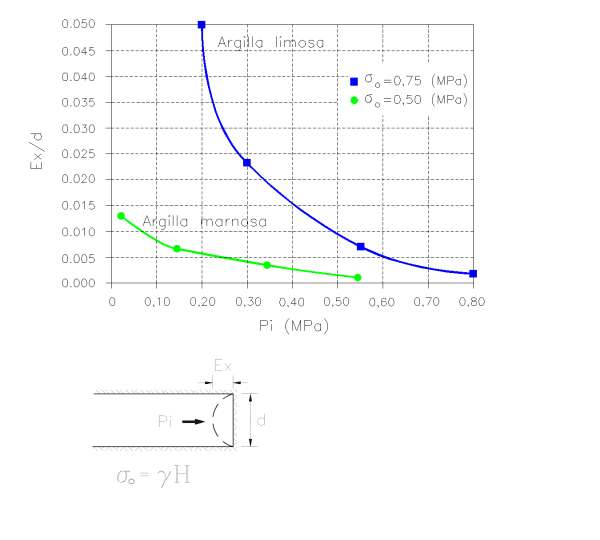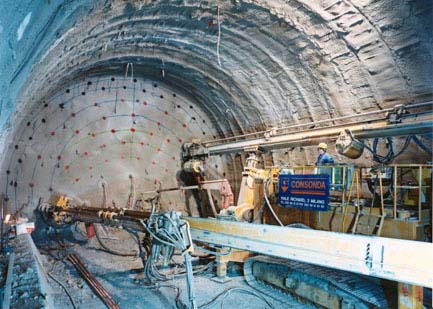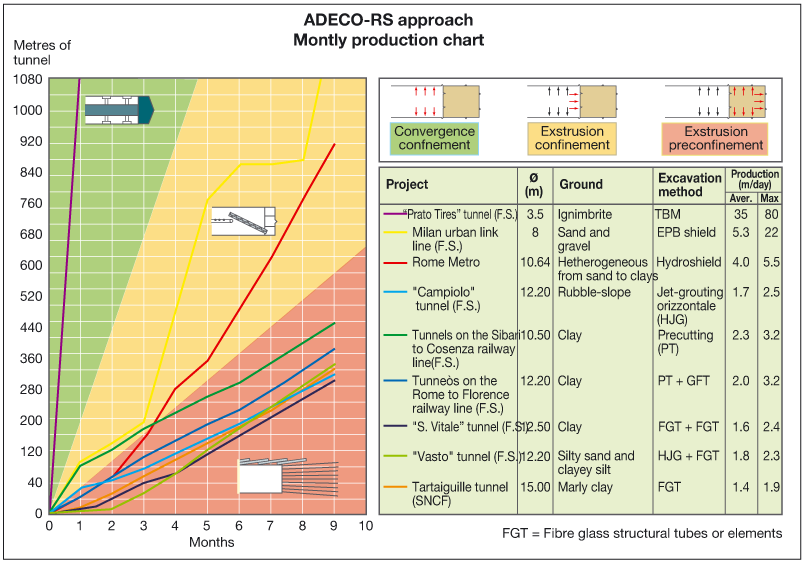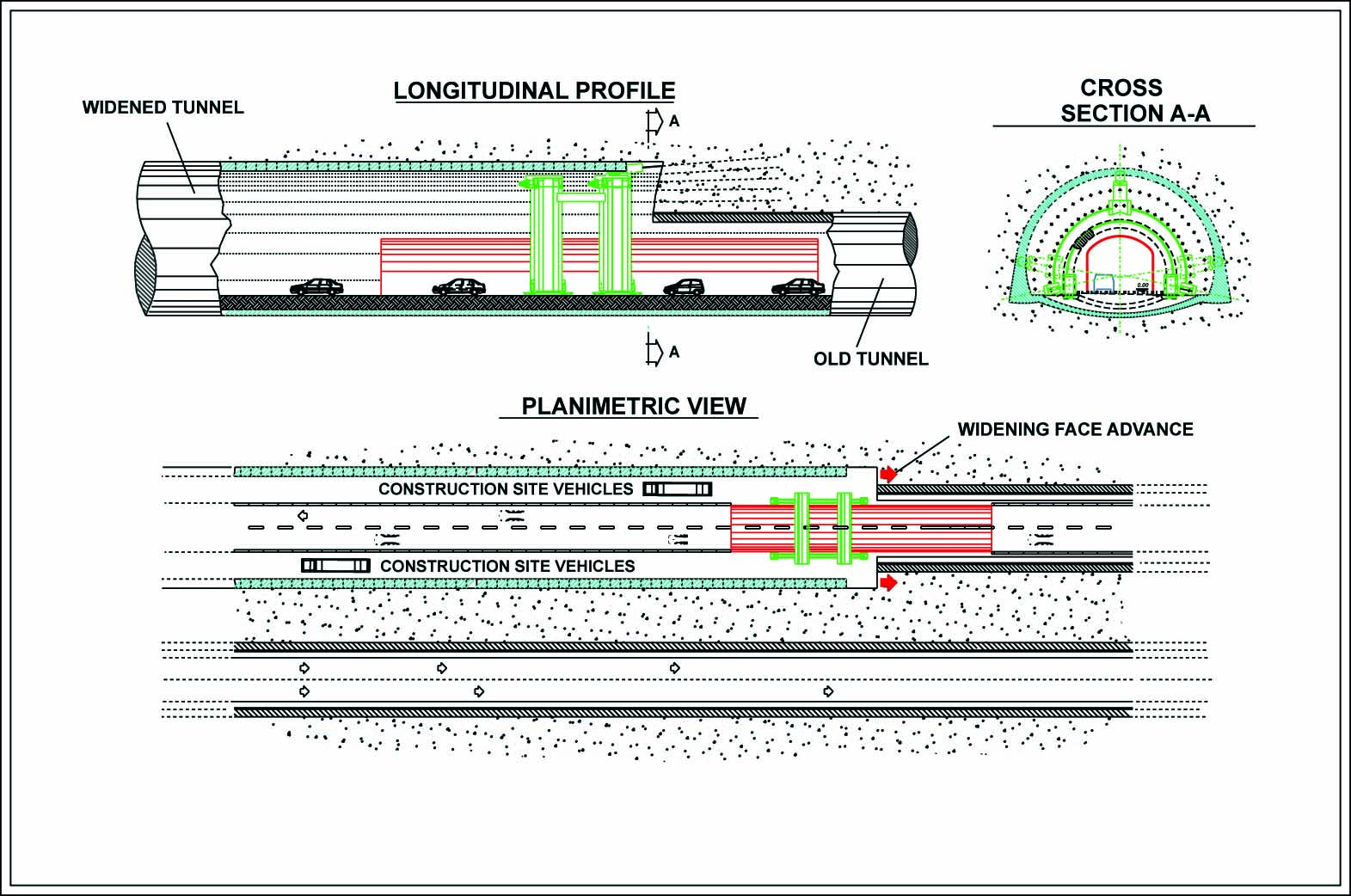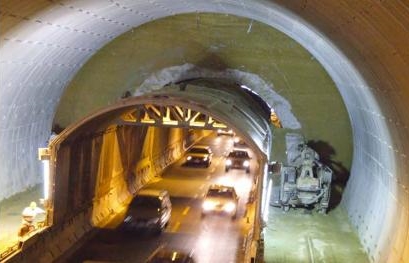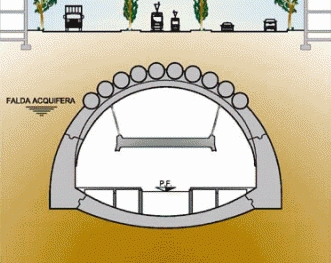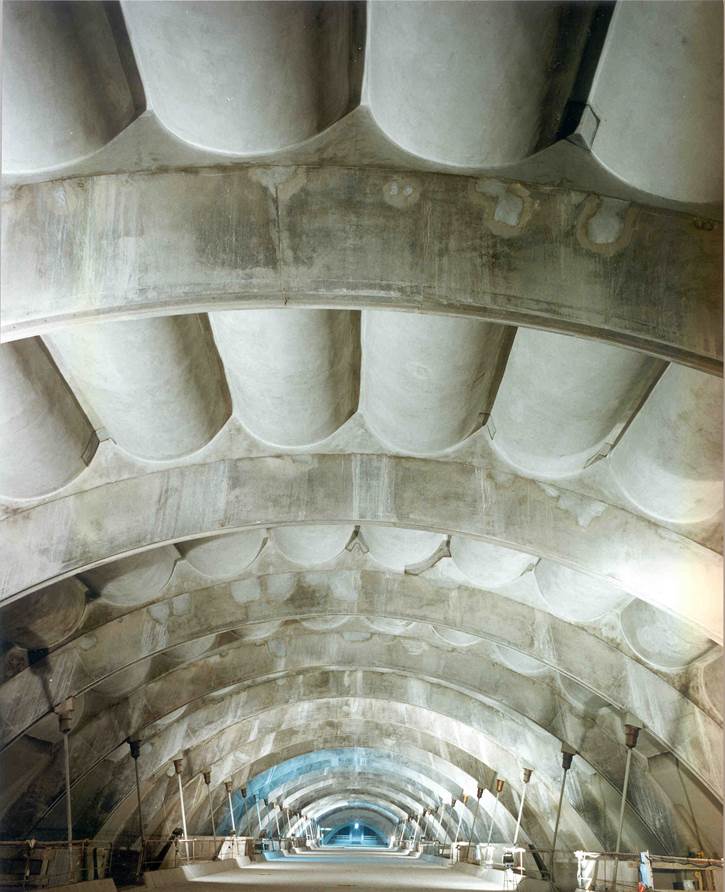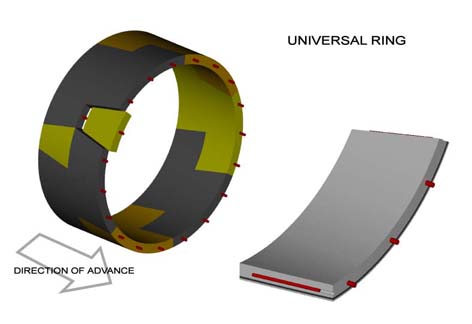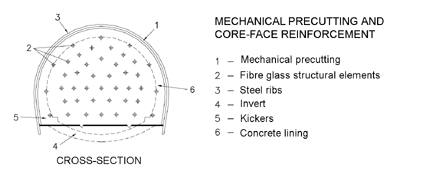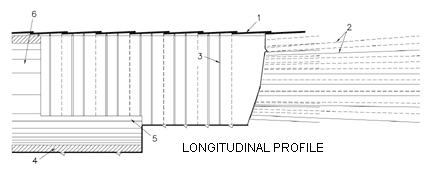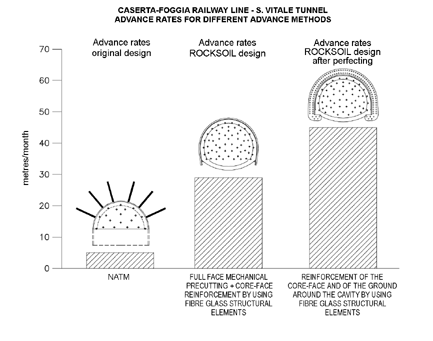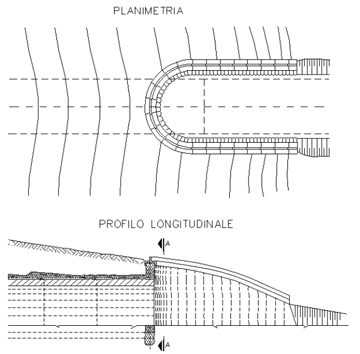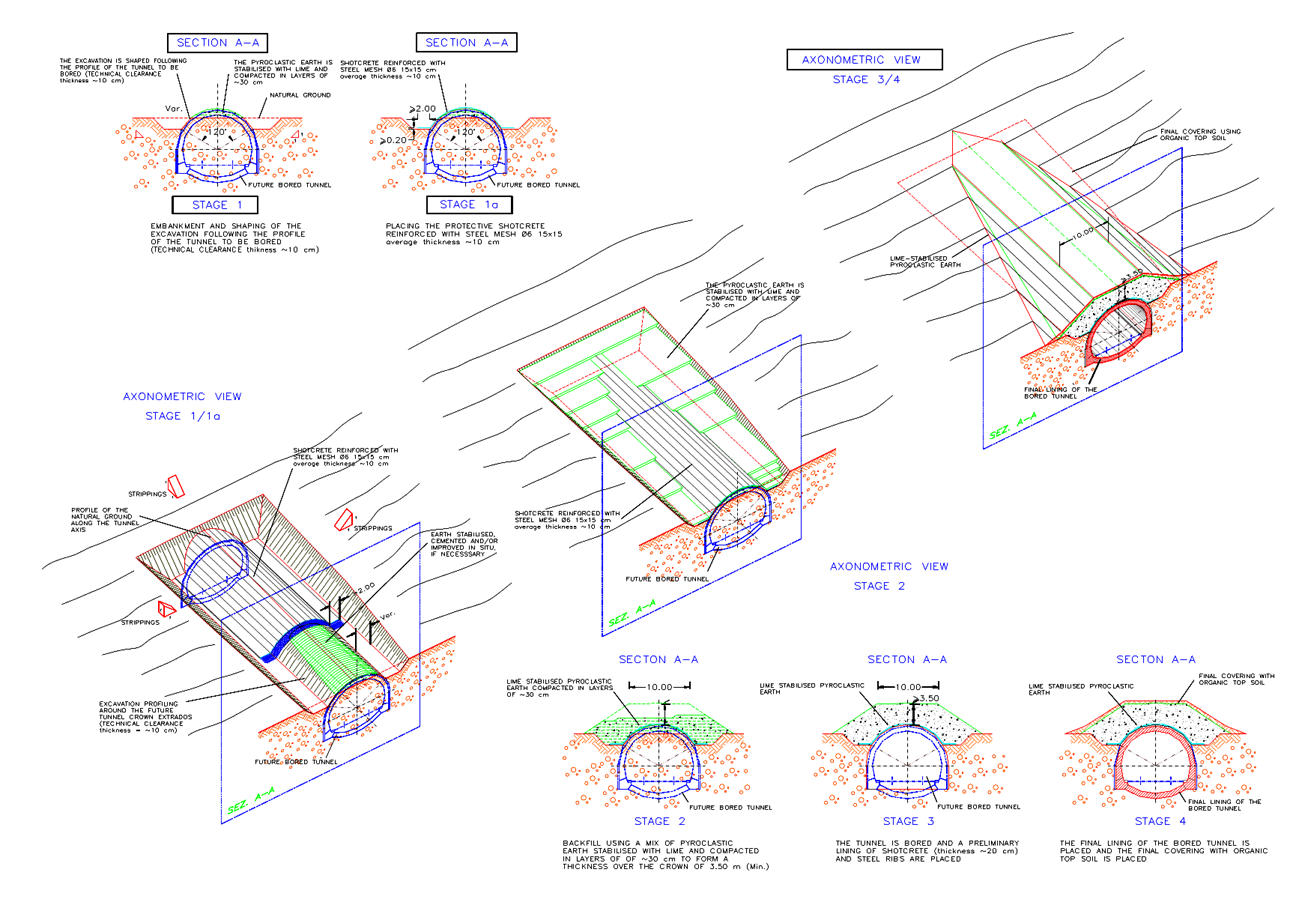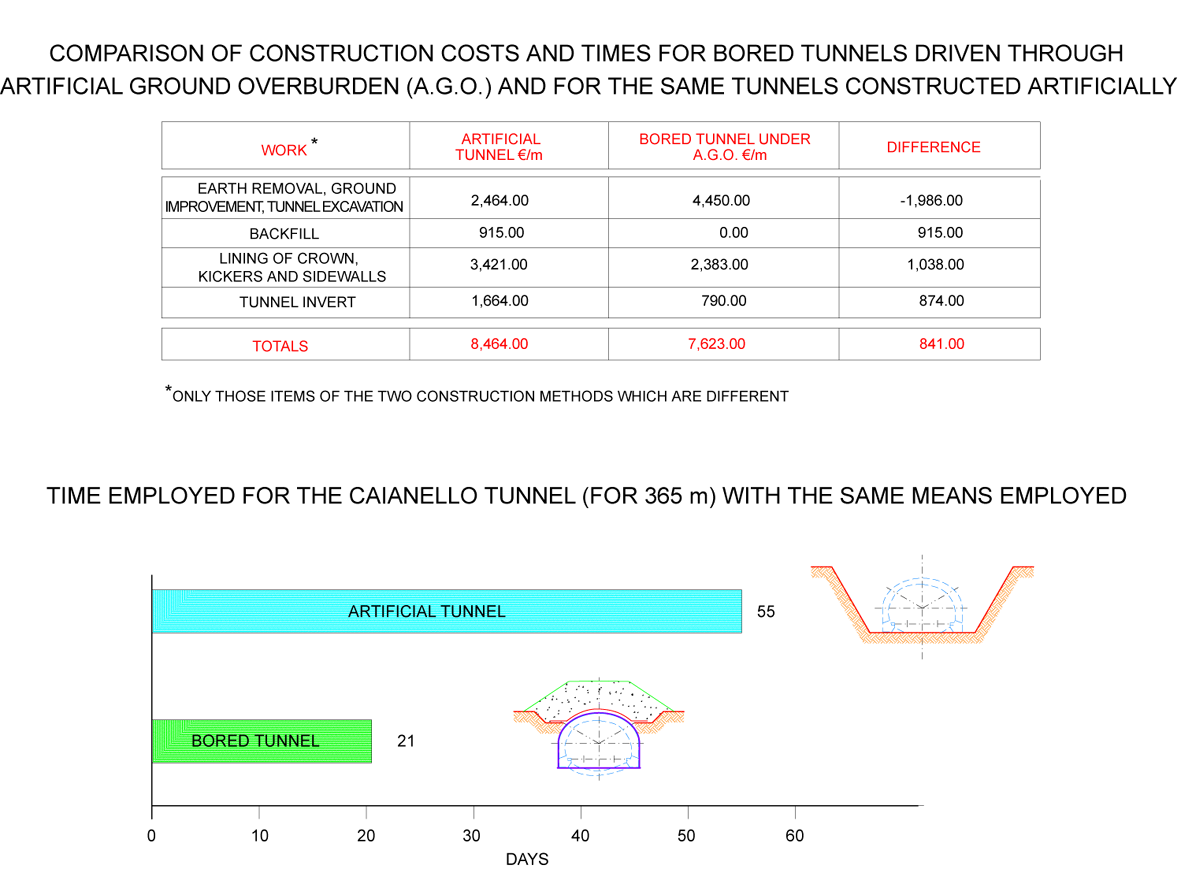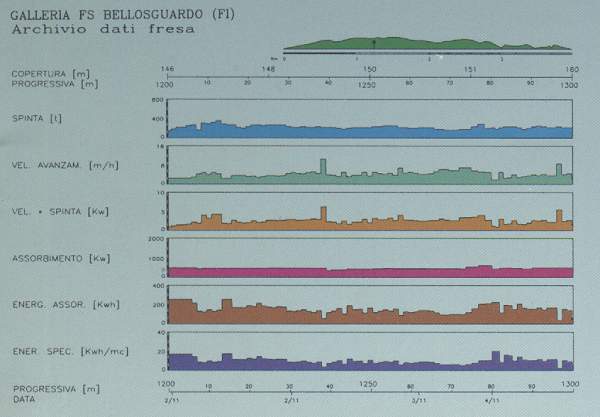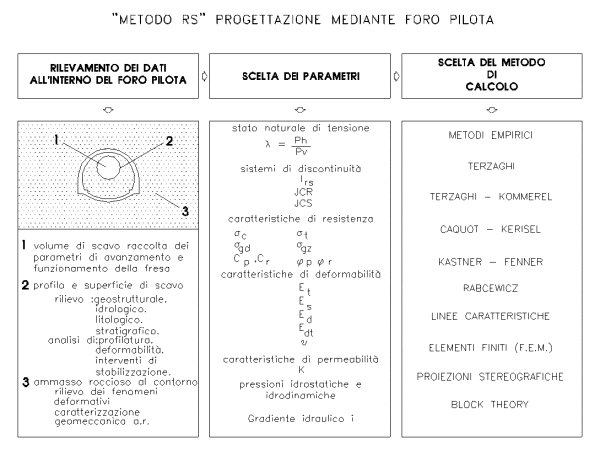Extrusion tests performed in triaxial cells were researched and developed by Rocksoil S.p.A. to study the probable deformation response of a tunnel to be constructed under difficult stress-strain conditions.
A test sample from rock or soil is inserted into the cell and the original stress state of the ground is recreated.
By maintaining the stress state around the sample constant and progressively decreasing the state of stress inside the extrusion chamber, the change in the stresses induced by tunnel advance is simulated and an estimate of extrusion at the face as a function of time or of internal pressure is obtained.
From an analysis of the extrusion curves obtained with this method, it is possible to make reliable predictions of the stress-strain behaviour of a tunnel during excavation and to design conservation procedures that may be indispensable to the success of the tunnel.
